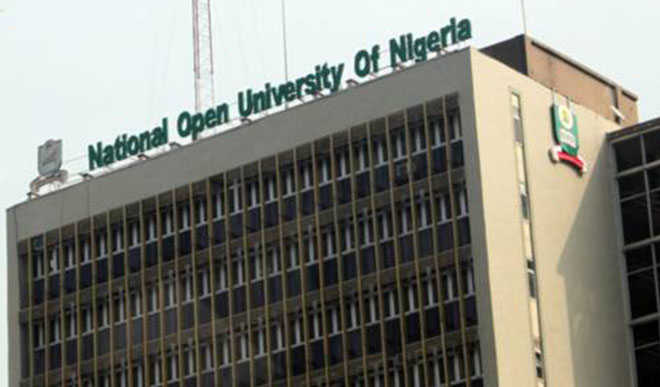NOUN is not an alternative to university education
It seems that as Nigerians we are always after seeking world class infrastructure without the desire to make world class inputs. Nothing echoed this antithetical desire as much as this week’s petition – supposedly signed by students – calling for the sack of the Vice Chancellor of the National Open University of Nigeria (NOUN) Professor […]


It seems that as Nigerians we are always after seeking world class infrastructure without the desire to make world class inputs. Nothing echoed this antithetical desire as much as this week’s petition – supposedly signed by students – calling for the sack of the Vice Chancellor of the National Open University of Nigeria (NOUN) Professor Vincent Tenebe and other top management of the institution. One has to say supposedly signed by students because the expectation is that genuine students should understand what the issues are and how their interplay affects the running of the system.
A statement signed by the Congress of NOUN Students accused the management of not responding to their claim that the institution has become a “den of endemic corruption”. Maybe one will also offer no response upon the realisation that the entity being described has no relationship with where one presides over.
First, there is that copycat tendency in some people. If could just be that the Congress of NOUN Students is out to replicate its own version of the #feesmustfall protest that recently crippled several South African universities over astronomical rise in school fees. From the Nigerians perspective, a simplistic view would be to conclude that #feesmustfall protest 10 – 15% hike in school fees for the 2016 academic year but the larger picture is to appreciate that the hike means an average of N700,000.00 for each student. Should the NOUN students be looking at replicating the protest going by their recent moves, it is best they also compare their overall fees with what obtains not just in South Africa but in other countries.
The second reason the management has to consider is the mere fact that the leadership of NOUN, since inception, has been superlative in the discharge of its duties. NOUN moved from being a concept, whose practicality and implementation was earlier doubted, to becoming a reliable institution. It even caught the attention of former President Olusegun Obasanjo, who became a proud student, finished his degree and remained an ambassador of distance learning in Africa. The management has been able to place the institution among Nigeria’s top 25 universities. It has also secured Senate’s approval for its graduates to take part in the National Youth Service Corps (NYSC) programme. These are achievements the management of NOUN, under Professor Tenebe has to celebrate more than it currently does so that Nigerians and their prospective students can appreciate the efforts they are making to provide quality manpower for the nation.
Furthermore, the university should create awareness on the relationship between the fees it charges and the quality it turns out. People often desire free education. The reality however is that education is never free. Someone or some entity is paying for or subsidizing education whenever students are able to get it for free. Another angle to this is that people should have realised by now that the word “cheap” and “quality” should not occur in the same sentence when they describe education. What the Congress of NOUN Students want, going by their statement and petition, is to either have “cheap” or “free” education. It is interesting to note that they made no reference to the quality of what they are getting out of distance learning, which affords many of them the opportunity to combine career growth with education.
One of the things the Congress of NOUN Students is not comfortable as indicated in their statement is the increase in the fees charged for research projects. Perhaps, a starting point would have been for the leaders of this congress to take a few minutes to do a Google search with the phrase “project research fees” or “research project fees” and then take a further few minutes to skim over the search results. They would then find that it is not a trend that is only associated with NOUN – other Nigerian universities charge the fee. If these students have the energy and patience to click on the links from the search query, they will further discover that project research fee averages N70,000.00 at institutions that charge them.
NOUN has proven to be the cornerstone of education and leadership. This progress must not be reversed on account of a few students’ leaders who want the universe to run according to their own whims. NOUN is not an alternative to university education and not a certificate factory where lazybones go to buy titles and certificates. Rather it is a pathway to higher learning.
Ibekwe can be reached at [email protected]
